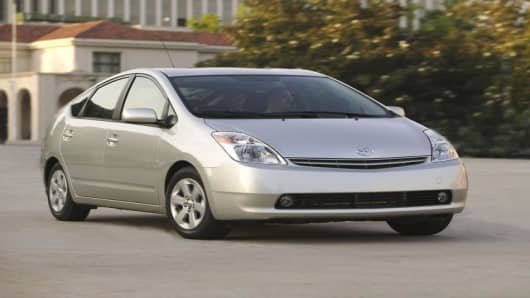Hondarecently said it will focus its alternative engine efforts on hybrids, not diesel or plug-in powered vehicles, as Toyota has already decided. Chrylseris expected to follow that lead. General Motors is taking a broader, more diversified approach.
Booz Allen Hamilton has had a team of people working with companies in the green area for more than a year. Senior VP William Jackson is the consulting firm's expert on the global automobile industry and specializes in operations and turnaround strategies.. He's also a member of the automotive board of the World Economic Forum in Switzerland. Jackson shared his views on corporate green movement in general and automakers in particular.
What are your clients discussing with you?
People are asking us ‘How to I source green, go green, buy green. How do I lower my packaging side, buy renewed products?' There’s a whole series of concepts people are looking into to see if they make sense.
What about hybrids and their growing popularity?
There’s the short term and the long term here. We did a survey of buyer incentives and driving habits about 18 months ago and most of the people said it made sense economically to buy a hybrid. The only vehicle line that was different was the Lexus 400H. People were buying that because they were environmentalists. For many people, it is an economic issues -- hybrids are more expensive.
The thing is that the internal combustion engine is very efficient. All the major automakers are working on alternatives. We’ll see multiple power tranes over time. Longer time it will come down to regulation and policies. I think the switch will be one that will get regulated over time. People will tax gasoline or impose a carbon tax and these vehicles will become more competitive.
How about applying a cost-benefit analysis to many of these corporate initiatives? Do many of them make sense or do very much?
I don’t believe many of the initiatives matter one iota in the over all scheme of things. That said this is about a behavioral mind shift that is occurring. The shift in policies over time will make the big difference -- that will have a big impact.
How is that debate playing out in certain industries?




